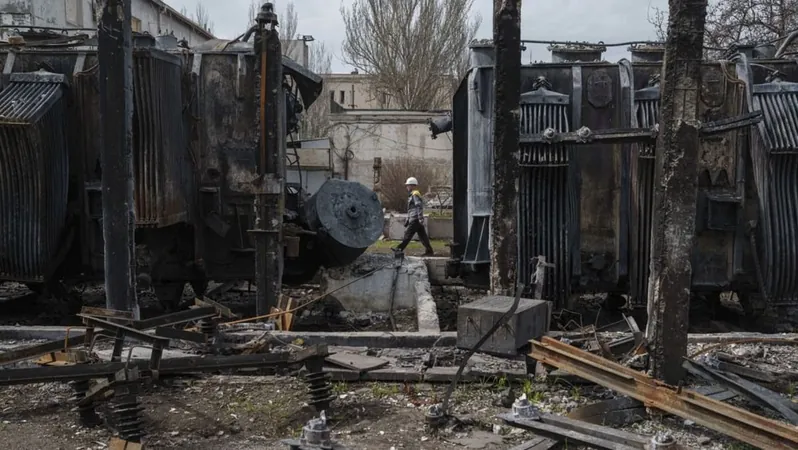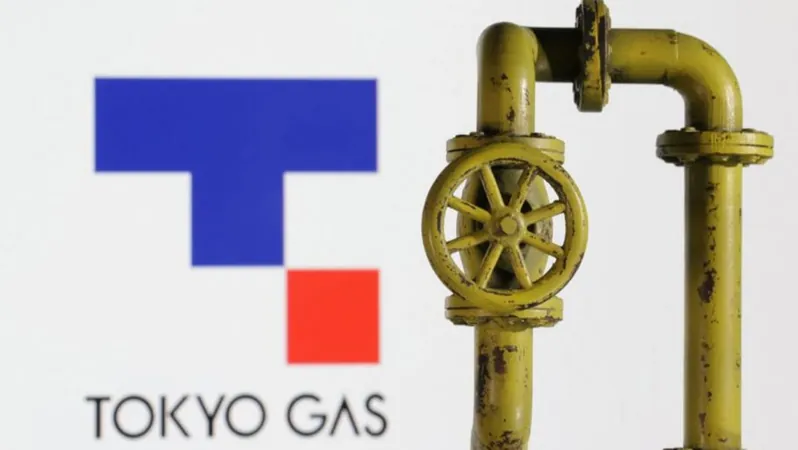
Moscow and Kyiv Exchange Blame as Ceasefire Efforts Hang by a Thread
2025-03-26
Author: Jia
In a dramatic escalation of tensions, Russia and Ukraine hurled accusations at each other on March 26, 2024, alleging violations that threaten a fragile truce aimed at halting attacks in the strategic Black Sea region and safeguarding energy infrastructure.
Ukrainian President Volodymyr Zelenskyy condemned a devastating attack overnight, where Russia launched over 100 drones, just hours after Ukraine had voiced agreement to a ceasefire framework developed through US-brokered discussions in Saudi Arabia. This truce is integral in seeking resolution to the conflict, which has entered its fourth year, with significant global implications.
U.S. President Donald Trump, who has been actively pursuing a resolution to the conflict, has emphasized the need for both Russia and Ukraine to adhere to the brokered agreement. However, questions loom regarding its actual implementation. The Kremlin has stipulated that any cessation of strikes in the Black Sea would only commence upon lifting restrictions affecting its agricultural sector—a demand that Kyiv has firmly contested.
Zelenskyy took to social media, stating: "This sizable attack post-ceasefire negotiations clearly indicates that Moscow is not serious about achieving real peace." He urged the international community to ramp up pressure on Russia through additional sanctions to limit further aggression.
In the latest drone assault, reports indicated that 117 drones were launched over Ukraine, with Ukrainian air defenses successfully intercepting 56. Despite these defenses, the attacks resulted in destruction in key urban areas, including Kryvyi Rih, the hometown of Zelenskyy, and Sumy province near the Russian border.
On the Russian side, officials accused Ukraine of targeting their energy sites—a claim Kyiv has vehemently denied, with Ukrainian military leaders branding these accusations as "false and baseless". They argue that Russia has continued its offensives on Ukrainian energy facilities, despite a purported 30-day truce ordered by President Vladimir Putin. The Ukrainian General Staff stated that Russian incursions have persisted unabated.
In retaliation, it's reported that Ukrainian forces targeted a gas storage facility in Crimea, further aggravating tensions. The Russian Defense Ministry accused Kyiv of undermining future peace efforts by continuing such strikes.
Both sides have issued contradicting statements regarding the status of the ceasefire. The U.S. acknowledged only a commitment by the parties to "develop measures" for a truce, while Ukrainian officials reported ongoing attacks on their energy infrastructure since the supposed ceasefire began.
As the uncertainty surrounding the truce grows, fears are mounting in Ukraine that Trump’s push for rapid resolution may compel them to concede to Russian demands, threatening their territorial integrity. Zelenskyy has been a vocal critic of any scenario that does not ensure lasting peace and security for Ukraine.
At a press conference, Foreign Minister Andriy Sybiga emphasized Ukraine's readiness for peace, urging Russia to exhibit genuine commitment through meaningful actions rather than manipulations. "There must be increased pressure on Moscow if they fail to demonstrate a real desire to negotiate," he stated.
In a notable commentary, Trump suggested that Russia may not be fully committed to the peace process, hinting at hesitation on their part. Meanwhile, German Foreign Minister Annalena Baerbock has called for an unconditional ceasefire, cautioning against being misled by Russian negotiations that come with preconditions.
As the conflict continues to unfold, the world watches closely, hoping for a resolution to what has become one of the most significant geopolitical crises in recent history.


 Brasil (PT)
Brasil (PT)
 Canada (EN)
Canada (EN)
 Chile (ES)
Chile (ES)
 Česko (CS)
Česko (CS)
 대한민국 (KO)
대한민국 (KO)
 España (ES)
España (ES)
 France (FR)
France (FR)
 Hong Kong (EN)
Hong Kong (EN)
 Italia (IT)
Italia (IT)
 日本 (JA)
日本 (JA)
 Magyarország (HU)
Magyarország (HU)
 Norge (NO)
Norge (NO)
 Polska (PL)
Polska (PL)
 Schweiz (DE)
Schweiz (DE)
 Singapore (EN)
Singapore (EN)
 Sverige (SV)
Sverige (SV)
 Suomi (FI)
Suomi (FI)
 Türkiye (TR)
Türkiye (TR)
 الإمارات العربية المتحدة (AR)
الإمارات العربية المتحدة (AR)